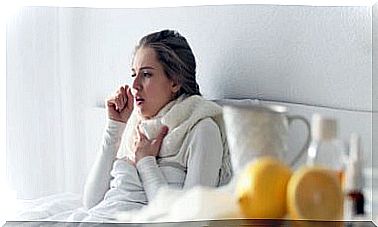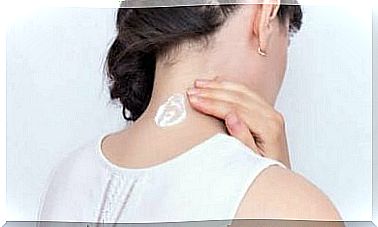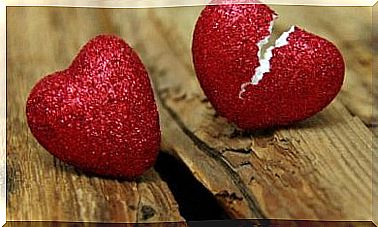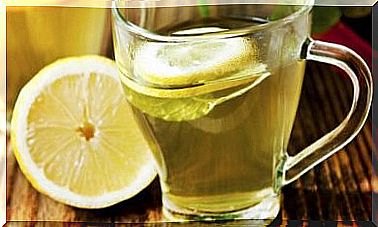Painful Ovulation: How To Relieve It?
In order to avoid the discomfort caused by painful ovulation, it is possible to resort to various natural remedies or to consult your gynecologist if no suitable solution is available to you.
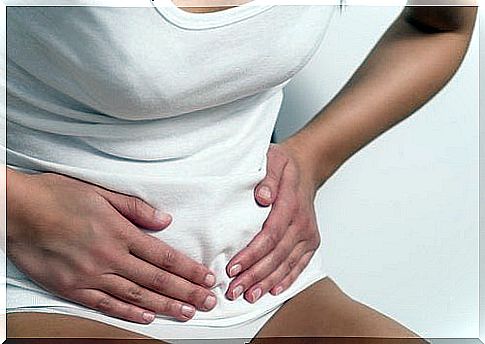
Painful ovulation is one of the biggest inconveniences experienced by women of childbearing age.
This pain manifests as cramps or colic in the lower abdomen. For most of these women, this condition is a real nuisance. The discomfort that it can generate sometimes arises in an acute way.
Some women may experience severe pain in the crotch or thigh, preventing them from performing even simple labor.
However, this condition is very common and it should therefore not be neglected, especially if it is accompanied by other symptoms.
We advise you to consult your doctor if you notice any unusual manifestation.
Today we help you with this article to alleviate the unpleasant effects of painful non-pathological ovulation.
What is ovulation?
Ovulation is a process in which the ovaries release an egg that is ready to be fertilized.
This process usually occurs between the second and third week of the menstrual cycle. However, it can vary depending on the hormonal levels of each woman.
Ovulation is divided into three phases:
- The follicular phase. It begins on the first day of bleeding. The follicles are developed. It is inside these small pouch-shaped membranes that the ovum will be housed. Once this small membrane is developed, the production of estrogen is encouraged.
- Ovulation. It occurs within 36 hours. When estrogen levels increase, they produce the secretion of enzymes, the egg develops until it is released at maturity. During this phase, the uterus contracts. These contractions are responsible for the pain that concerns us.
- The post-ovulatory phase. After ovulation, we see the development of the luteal body, a gland that secretes progesterone. If the egg is not fertilized, this gland breaks up, giving way to ruptured blood vessels, which causes a new menstrual cycle.
Know your body
It is very important to know your menstrual cycle. Although this is obvious to some women, other women do not pay the necessary attention to their cycles.
Therefore, learn that the menstrual cycle can vary every month, two or three days, without pathological reason. However, if your cycle shows major variations, we advise you to consult your gynecologist.
Know the symptoms
- Severe or lasting pain (3 days or more)
- Discomfort or burning when urinating
- Fever or profuse sweating
- Vomiting or nausea
The presence of these signs indicates that something is wrong with your body. Therefore, in case of the presence of these symptoms, you should consult as soon as possible.
Recommendations against painful ovulation
Here are some recommendations for relieving painful ovulation:
Relax
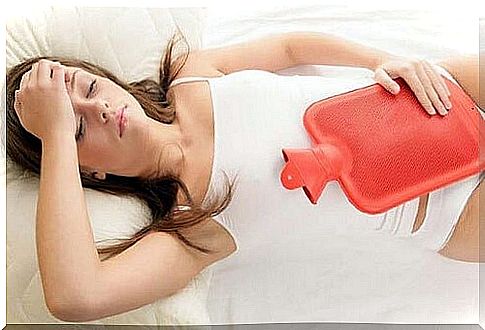
Adding muscle tension to the cramps caused by painful ovulation will make the pain worse.
Therefore, practicing a stretching exercise will effectively relieve the pain. You can also try some yoga exercises, they will help you release the tension.
Consume herbal teas
The anti-inflammatory and calming properties of chamomile and honey will give you excellent results.
Ingredients
- A cup of water (250 ml)
- 1 sachet or 1 tbsp of chamomile (10 g)
- 1 tsp of honey (7.5 g)
Preparation
- Place a sachet of chamomile in a cup of boiling water and add a teaspoon of honey.
- Let it steep for 5 minutes then drink slowly.
Apply warm compresses on the lower abdomen
The heat helps relax muscles and facilitate blood circulation.
Take a hot shower

Hot water will give you a calming effect, as the heat impacts the nerve endings in our body.
In addition, heat increases the release of endorphins, neurotransmitters that are responsible for dissipating pain.
Avoid coffee consumption
Caffeine has vasoconstrictor effects, which increases sensitivity and pain.
Take painkillers

Try some over-the-counter pain relievers such as ibuprofen or acetaminophen. These painkillers inhibit the production of prostaglandins, substances causing contractions of the uterus from which the pain is derived.
If natural remedies or pain relievers are not enough to ease the pain, also consider prescribing contraceptives appropriate for your hormonal cycle.
Indeed, their effectiveness is no longer to be proven in the treatment of painful ovulation.
Don’t let the pain get you down!
Despite the pain caused by the inconvenient period of ovulation, these symptoms are the monthly daily newspaper of many women, although for some more fortunate, the menstrual cycle goes almost unnoticed.
However, you should keep an eye out for any changes that you feel are abnormal.
Prevention has always been the most effective tool to prevent major illnesses.
Remember to visit your specialist periodically, as it is essential to maintain good health.
